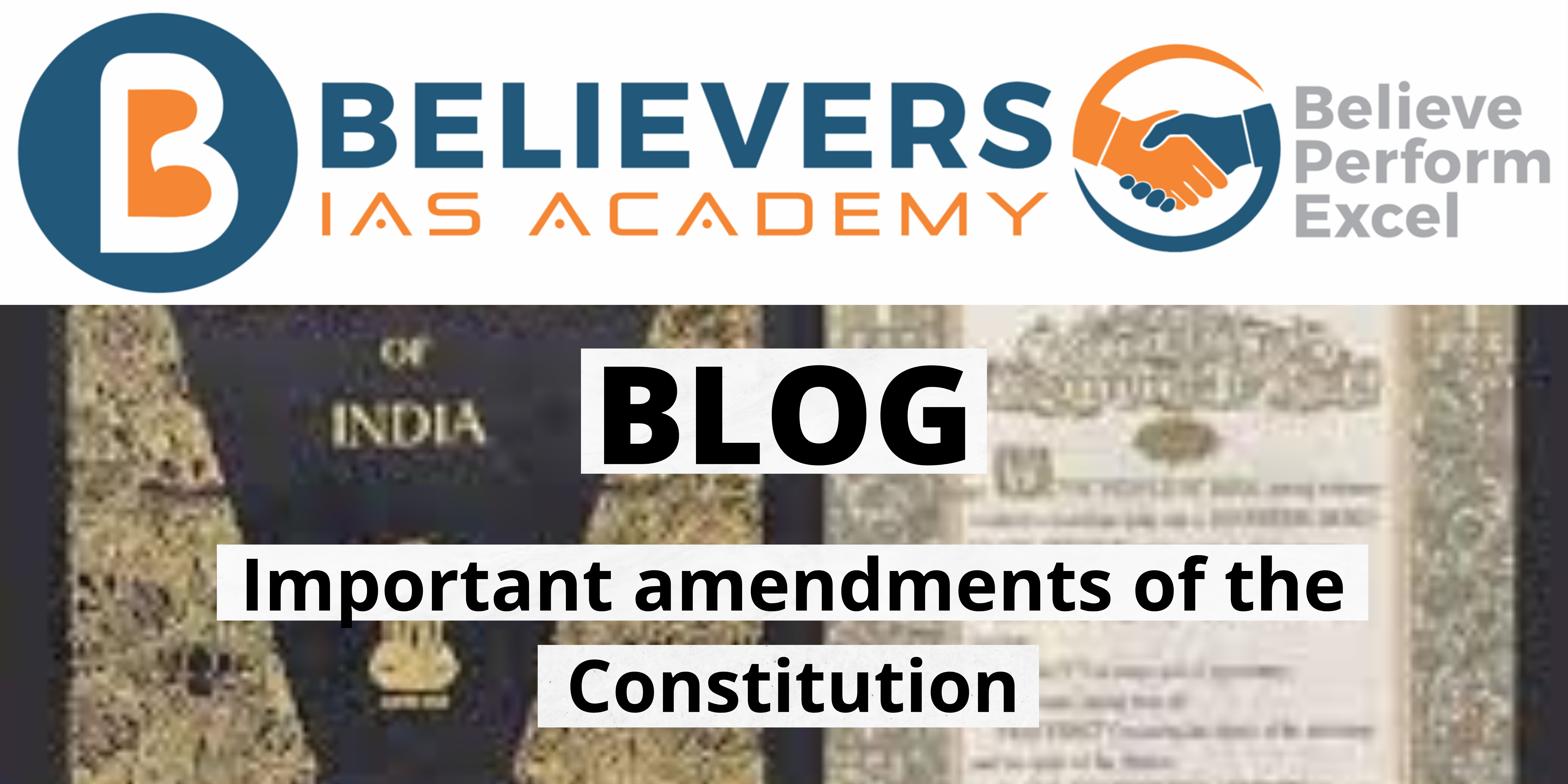Important Amendments of the Constitution – Part 4
The important amendments
Part 4
Forty-four Amendment Act, 1978
- This was brought with the aim to undo most of the provisions of the 42nd Constitutional Amendment Act.
- Restored the original term of the state legislative assemblies and the Lok Sabha (i.e., 5 years).
- Restored the provisions with regard to the requirement of quorum in the Parliament and state legislatures.
- Removed the reference to the British House of Commons in the provisions related to parliamentary privileges.
- Gave constitutional protection to newspapers in case of publication of true reports of the proceedings of the Parliament and the state legislatures.
- Empowered the president to send back the advice of the cabinet for reconsideration once however, the reconsidered advice is to be binding on the president.
- Removed the provision which made the satisfaction of the president, governor, and administrators non justiciable in issuing ordinances.
- Replaced the term ‘internal disturbance’ by ‘armed rebellion’ as a cause for declaring national emergency.
- Made it mandatory on the President to declare a national emergency only on the written recommendation of the cabinet.
- Deleted the right to property from the list of Fundamental Rights and made it into a legal right.
- Ensured that the fundamental rights guaranteed by Articles 20 and 21 cannot be suspended during a national emergency.
- Removed the provisions which made the election disputes of the president, the vice-president, the prime minister and the Speaker of the Lok Sabha beyond judicial review.
Fifty-Second Amendment Act, 1985
Added a new Schedule (Tenth) which provided for disqualification of members of Parliament and state legislatures on the ground of defection.
Sixty-First Amendment Act, 1989
Reduced the voting age for the Lok Sabha and state legislative assembly elections from 21 years to 18 years.
Sixty-Fifth Amendment Act, 1990
Established a multi-member National Commission for Scheduled Castes and Scheduled Tribes instead of a Special Officer for Scheduled Castes and Scheduled Tribes.
Sixty-ninth Amendment Act, 1991
Created a special status to Delhi as the ‘National Capital Territory of Delhi.’
Provided 70-member legislative assembly and a 7-member council of ministers for Delhi.
Seventy-Third Amendment Act 1992
Added Part-IX and 11th Schedule which gave constitutional status for the Panchayati Raj institutions.
Seventy-fourth Amendment Act 1992
Part IX-A and the 12th Schedule which gave constitutional status for the Urban local bodies.




